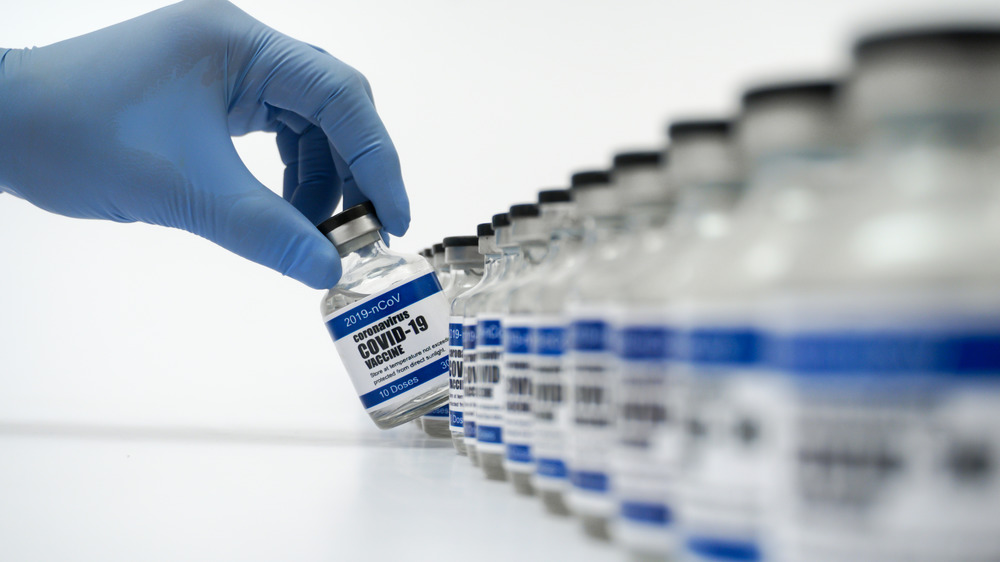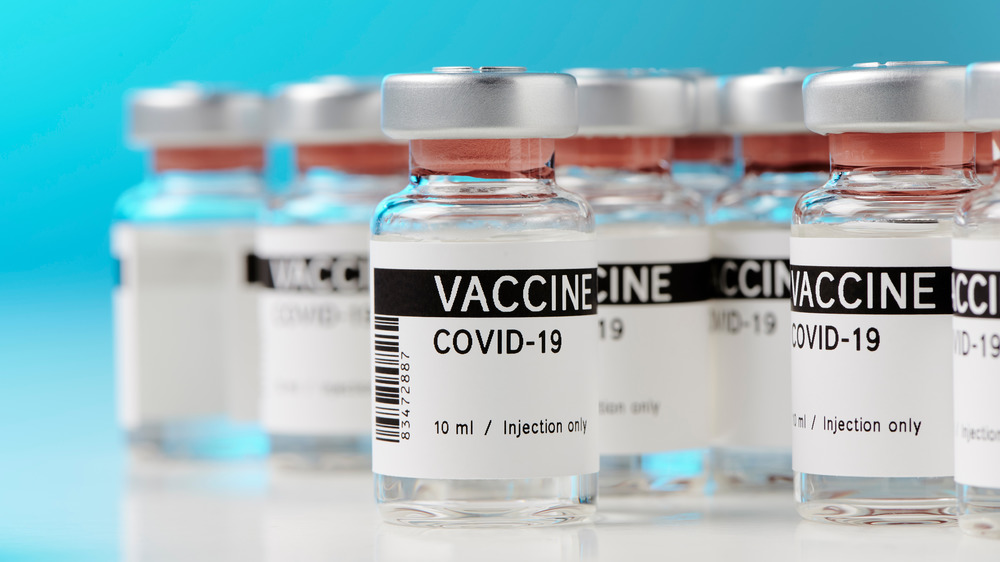Can You Choose Which COVID-19 Vaccine You Get?
Now that there are three different COVID-19 vaccines available in the United States, you may be wondering if you'll get to choose which one you get. While that might be the case later on, it's highly unlikely that you'll be able to choose between the three vaccines anytime soon (via HuffPost). Fortunately, it doesn't really matter which one you receive anyway. The Moderna, Pfizer-BioNTech, and Johnson & Johnson vaccines are all effective vaccine options that will help protect you against COVID-19.
While there is no denying that there are some differences between the one-shot Johnson & Johnson vaccine and the two-dose, mRNA-based vaccines, all three have been approved by the U.S. Food and Drug Administration and were proven safe and effective during their respective clinical trials. Ultimately, you should take whichever vaccine is available to you.
"If someone has an opportunity to get vaccinated, do it as soon as possible," Dr. Jennifer Lighter, a pediatric infectious disease specialist at NYU Langone Health, told Today. "Do not wait or hesitate or vaccine shop. The more people we get vaccinated as soon as possible is extremely important. We're in a race against the virus, right? It's not just having the vaccine, it's really getting it into people's arms."
What are the differences between the vaccines?
While all three vaccines are safe and effective, they do have some notable differences between them. For instance, the Johnson & Johnson vaccine is an adenovirus vector vaccine that has an efficacy rate of 72 percent and only requires one dose (via MarketWatch). The Pfizer and Moderna vaccines, on the other hand, are both mRNA vaccines that require two shots three to four weeks apart and each have an efficacy rate of 95 percent. All three vaccines, however, were 100 percent effective at preventing death during their clinical trials.
That's why experts agree that it's important not to get fixated on the numbers (via NBC News). The three vaccines weren't compared to each other or studied at the same time, and their clinical trials were all run differently. There were also different variants of COVID-19 circulating around when they were in the process of being studied and produced. In other words, the Johnson & Johnson vaccine's lower efficacy rate does not necessarily mean it is less effective than the two mRNA vaccines. It just means that it was studied under varying circumstances.


